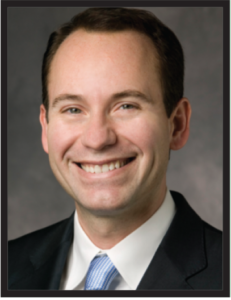COVID-19: Danger and Opportunity
 by John M. Morton, MD, MPH, MHA, FACS, FASMBS, ABOM
by John M. Morton, MD, MPH, MHA, FACS, FASMBS, ABOM
Clinical Editor of Bariatric Times; Vice-Chair of Quality and Division Chief of Bariatric and Minimally Invasive Surgery in the Department of Surgery at Yale School of Medicine in New Haven, Connecticut.
Dear Friends and Readers,
We are in the midst of a truly unique time in health and America. The concern and disruption in healthcare today is unprecedented. It is often repeated that in the Chinese language, the word for crisis is composed of characters for both danger and opportunity. As we confront this crisis, what are our opportunities? And during these times, what are we as bariatric healthcare professionals (HCP) being asked to do? To defer, suspend, and wait until this crisis passes. As I write this, elective surgery of all types are being canceled to give way to the potential of thousands of hospitalized and intubated COVID-19 patients. I hope and pray for any patient—past, present, or future—afflicted with the virus.
There is a rapid and frank appraisal of what is essential in the current circumstance. The current crisis reveals neglected infrastructure in healthcare to meet pandemic demands that reminds me of the story of the Little Red Hen. If you recall, the Little Red Hen focused on planting and caring for the seeds that will one day bear a bountiful harvest while the cat, dog, and goose chose to ignore the future. As bariatric HCPs, we should do the same and focus on planting the seed and plan on the harvest. Guiding principles of resource allocation includes saving the most lives and life-years along with treating the sickest first. Treating obesity clearly answers these guiding principles, and if we don’t treat obesity, every pandemic will be worse. Patients with obesity often have more comorbidities, a risk factor for COVID-19 acquisition and mortality, with obesity itself being an independent risk factor as well.
In keeping with public health measures, social distancing precludes in-person informational seminars, clinic visits, and support groups.
At the same time, we have seen a relaxing of regulations for telehealth. Will we find that required in-person interactions are not required and that patients will have the same benefit through telehealth visits? Are patient-reported outcomes equivalent to in-person visits? Will we save cost and improve outcomes? Here is a natural experiment from which we must learn. Organizations like the American Society for Metabolic and Bariatric Surgery (ASMBS) and the American College of Surgeons (ACS) have answered the call with clear direction, and the national accrediting body for bariatric care Metabolic and Bariatric Surgery Accreditation and Quality Improvement Program (MBSAQIP) is allowing for telehealth visits, suspending site visits, factoring elective surgery decline into volume consideration and extending accreditation for one year.
This crisis will reveal divides—those who can and cannot work from home, those with and without day care, and those with and without access to healthcare. Like any crisis, it will accelerate change. What can be the impact on the four quadrants of healthcare?
- Patient: Emphasis on telehealth and patient- reported outcomes
- Payor: Less spending on elective surgeries and asset devaluation due to stock market decline
- Physician and Surgeons: Change in practice and greater stress on private practice
- Hospitals: Decreased reimbursement and slowing of consolidation
While this crisis continues, what can we do while we wait? If our patients cannot get needed surgical therapy, can we learn from our surgical oncology colleagues who are placing patients on neoadjuvant therapy while they wait for cases to start again. Perhaps we can do the same for patients with new anti-obesity medications. As specialty surgeons, can we help our acute care surgery colleagues by taking general surgery calls, allowing them to care for affected patients in intensive care units? We can learn about this crisis and its impact on the patient with obesity. We already know that obesity lessens the effect of the flu shot, increases shedding of the influenza virus, and worsens the clinical course of the patient with viral disease. We are the medical home for the patient with obesity, and we need to see what we can do to prepare them for the next pandemic. And there is no doubt there will be a next time. Globalization provides great facility in travel and supply chain, but the pandemic is the other side of the coin.
Two industries often criticized have demonstrated their value during this social isolation. Social media and Hollywood have bridged the social divide, providing information, entertainment, and even food during this time. Where would we be with only a local newspaper? Without our smart phone? Or on-demand food? Perhaps this will lead to more cooking at home and talking at home, which can only be of benefit.
We have a precious commodity given to us—health and time. Take advantage of it. Find your opportunity—stay active, write a book or editorial, review papers, get an additional certification, reach out to friends and family. Try to find the emotional equivalent of a handshake and hug without physical contact. Most importantly, appreciate what you have. Stay safe.
Sincerely,
John M. Morton, MD, MPH, MHA, FACS, FASMBS, ABOM
Category: Editorial Message, Past Articles





